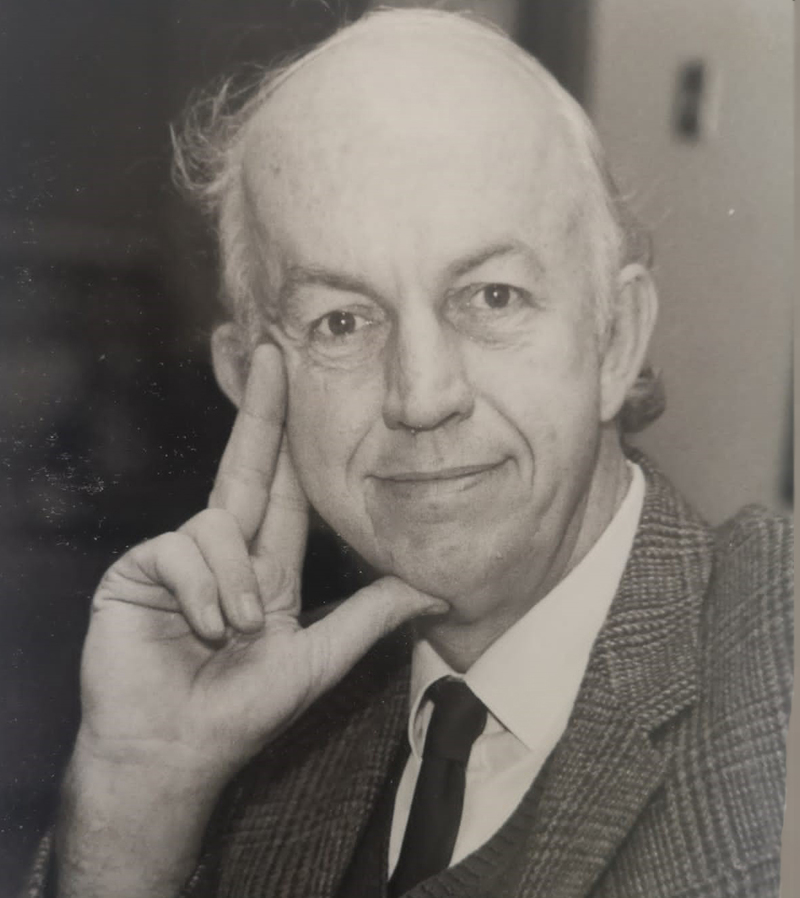Emeritus Associate Professor Peter E Spargo: 1937–2021
02 August 2021 | Written by Rudiger Laugksch. Photo Cathy Spargo. Read time 5 min.
We are deeply saddened by the death of Emeritus Associate Professor Peter Spargo on 2 August 2021 in Rondebosch. Peter joined the Faculty of Education at the University of Cape Town (UCT) in 1976 as a senior lecturer in Science Education and became the director of the Science Education Unit in 1980. He retired from the School of Education in December 1997.
Peter completed a BSc(Eng)(Metallurgy) at the University of the Witwatersrand (Wits) and obtained a Postgraduate Certificate of Education from the University of Cambridge. He worked as a Physical Science high-school teacher before joining the Johannesburg College of Education and later the Transvaal Education Department in various lecturing and curriculum planning capacities for more than 10 years. His arrival at UCT coincided with the general establishment of science education as an academic discipline, and he, together with his contemporaries at Wits, put science education on the map in South Africa.
Peter had a great number of interests and passions, encompassing chiefly the history of science in its broadest sense, science teacher education, and the natural environment. He developed a strong interest in Sir Isaac Newton’s alchemy experiments, which he carefully catalogued and analysed in light of modern chemistry. Peter’s work here led to another, rather unique, hypothesis: Could Newton’s clearly documented “derangement of the intellect” possibly be attributed to exposure to heavy metals – known to produce nervous symptoms – as a result of his chemical experiments? In a fascinating account, Peter was able to show that Newton’s hair indeed contained traces of several heavy metals in much higher concentrations than in modern hair, providing circumstantial evidence for the hypothesis as to the cause of “Newton’s so-called ‘nervous breakdown’ of 1692/93”. Perhaps not surprisingly given his interests, Peter was the General Secretary of the Royal Society of South Africa from 1986 to 1990, being elected a Fellow of the Royal Society of South Africa himself in 1987.
Peter enjoyed a ‘helicopter perspective’ of issues and was passionate about the role of science and science education in South Africa’s development and prosperity. He established the SA Association of Teachers of Physical Science (SAATPS) and the Federation of Science and Mathematics Teachers’ Associations of South Africa, and was the organisations’ first chairman and first president, respectively. Being very well connected, Peter was able to bring together participants from industry, provincial education departments, the Chamber of Mines, statutory research organisations, universities, and professional science organisations in a three-day workshop to consider and to recommend how school science might be strengthened. The resulting document – A science education policy for South Africa – was very influential in the 1980s.
As a teacher, Peter was engaging, provocative and interesting. His lectures were an exciting combination of science, history of science, and pedagogy, always stressing the relevance of science in everyday life and its possible role in South Africa’s development. He trained hundreds of science teachers, and their passion, skill and insights are very much due to Peter’s charismatic and absorbing approach to pre-service science teacher education. He was regarded as somewhat eccentric and known for speaking his mind and for not suffering fools gladly; many a student (and staff member!) was sent packing with a withering comment. However, despite the appearance of a somewhat stern demeanour, Peter was mischievous and funny, and was a social being right to the very end. His dinner parties for postgraduate students were legendary, invariably ending with port and serious debate of one or another issue (“So, do you think we’ll ever find a cure for AIDS?”).
In his spare time, Peter loved to walk in Kirstenbosch and up Skeleton Gorge / Nursery Ravine, often weeding parts of the forest floor to remove young alien vegetation but – much to the bewilderment of his family – leaving the weeds in his own garden untouched! His curiosity of the natural and man-made world, and his beautiful craft of writing, made it possible for him to publish all manner of interesting pieces for wide-ranging lay audiences, the topics ranging from mining coal in the Kruger Park to changes in the water temperature of Colonel Bird’s bath in the Kirstenbosch Botanical Garden and his family’s adventures in Mordecai – a 1948 Chevrolet Fleetmaster.
Peter’s connection to and interest in mining also yielded an historical account of early mining activity at the Cape. He additionally provided a careful description of the only true mining venture within the city of Cape Town – the Vredehoek tin mine.
Peter is survived by his wife, Celia; four daughters (Cathy, Margaret, Margot, and Trish), and his eight grandchildren.
 This work is licensed under a Creative Commons Attribution-NoDerivatives 4.0 International License.
This work is licensed under a Creative Commons Attribution-NoDerivatives 4.0 International License.
Please view the republishing articles page for more information.








